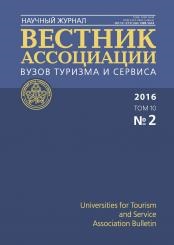The article discusses the features of the concept of cultural policy as a social system. In particular the authors notes that the culture as a system has six major manifestations: as an element of the quality of life of modern man; as part of creative economy; as a system of spiritual values, attitudes, orientations and motives of a human and other elements of society; as a creative process and the whole set of artistic activities; as cultural heritage; as an entire population of people who identify themselves with a particular social system based on common cultural traits ("cultural codes"). The article also provides an analysis of some of the definitions of cultural policy. Marked are milestones in the history of cultural policy and formulated are the basic features of the past seven cultural revolutions as qualitative changes in the role of culture in society. In particular noted that, currently, the culture is going through a period of "self-realization " and is on the verge of becoming a total social phenomenon. The article notes the connection of cultural policy with "high politics", as well as with innovation policy. The aspects of ideology as a cultural phenomenon are also considered. In addition, the paper focuses on the role of cultural policies in the modern economic development. In particular noted that the implementation of cultural policy stimulates the emergence of more creative people, which clearly leads to their interaction with entrepreneurs who, in turn, too, as a rule, are creative people, and entrepreneurship has all the necessary features of creative activity. In general, we can make a clear conclusion that cultural policy as a social system is manifested in all spheres of human activities, and culture as a system is gradually acquiring a comprehensive character.
culture, politics, cultural policy, management, system
Культура и культурная политика
Культура в российской практической управленческой и экономической деятельности до сих пор понимается как одна из отраслей социальной сферы, что является глубоко устаревшим представлением.
В научной литературе существует более четырехсот определений культуры [13]. Для наших целей наиболее адекватным является понимание культуры как целого комплекса человеческой деятельности, связанного с творческой активностью субъекта.
1. Vostryakov L.E. Kul´turnaya politika: kontseptsii, ponyatiya, modeli. Institut kul´turnoy politiki. http://www.cpolicy.ru/analytics/80.html (data obrashcheniya: 1 dekabrya 2014 g.).
2. Genisaretskiy O.I. Kul´turnaya politika, orientirovannaya na cheloveka. Problemy esteticheskogo vospitaniya: obzornaya informatsiya. Sotsial´noe proektirovanie i tselevoe programmirovanie v oblasti esteticheskogo vospitaniya. M.: GBL, 1989.
3. Zelentsova E., Mel´vil´ E. Kul´turnaya politika i ekonomika kul´tury. Tezisy dlya sborki regional´nykh strategiy. M., 2010. 96 s.
4. Korshunov V.V. Tsennosti kul´tury i tsivilizatsii ne sovpadayut. Sovremennye issledovaniya sotsial´nykh problem (elektronnyy nauchnyy zhurnal). 2013. № 10 (30).
5. Latfullin G.R., Novichkov N.V. Politicheskaya organizatsiya: Uchebnoe posobie. SPb.: Piter, 2007.
6. Novikova NG., Zorina N.M., Korshunov V.V. Ispol´zovanie situatsionnykh zadach v obuchenii studentov sozdaniyu delovogo diskursa. Obrazovanie i obshchestvo. 2014. № 6.
7. Novichkov N.V. Evropeyskiy gorod Perm´ (Permskiy kul´turnyy proekt). Sovremennaya Evropa. 2012. №3.
8. Novichkov N.V. O nekotorykh aspektakh razvitiya turizma kak chasti kreativnoy ekonomiki i ekonomiki vpechatleniy. Servis v Rossii i za rubezhom. 2013. № 8 (46).
9. Novichkov N.V. Ot biznesa k tvorchestvu. Svobodnaya mysl´. 2010. № 9.
10. Novichkov N.V. Politicheskoe upravlenie i kul´turnaya politika. Vestnik Moskovskogo gosudarstvennogo universiteta kul´tury i iskusstv. 2011. № 4.
11. Novichkov N.V. Tvorcheskaya svoboda dlya kul´tury, biznesa, innovatsiy. Vestnik Assotsiatsii vuzov turizma i servisa. 2014. T. 8. № 2.
12. Pavlenok P.D., Kharitonova T.V., Krivosheeva T.M., Anikeeva O.A., Mityurnikova L.A., Shemeneva O.V., Mozgovaya T.M., Krasnova O.N., Fodorya A.Yu., Pogrebova E.S. Kachestvo zhizni naseleniya sovremennoy Rossii v kontekste sotsial´nogo gosudarstva. Otchet o NIR (Federal´noe agentstvo po obrazovaniyu).
13. Stolyarov D.Yu., Korshunov V.V. Kul´turologiya. M., 1998.
14. Trosbi D. Kul´turnoe izmerenie razvitiya: istoriya, kontseptsii, konkretnye primery. Kul´turologiya: ot proshlogo k budushchemu. M.: Rossiyskiy institut kul´turologii, 2002.
15. Trosbi D. Ekonomika i kul´tura. M.: Izd. dom Vysshey shkoly ekonomiki, 2013. S. 136-137.
16. Kharrison L. Kto protsvetaet? Kak kul´turnye tsennosti sposobstvuyut uspekhu v ekonomike i politike. M.: Novoe izdatel´stvo, 2008. 300 s.
17. Cultural policy: a preliminary study. (Paris: UNESCO, 1969).
18. Kortunov V. Modernization of Russia in the context of cultural experience of the East and West. Middle East Journal of Scientific Research. 2013. T 14. № 1.





